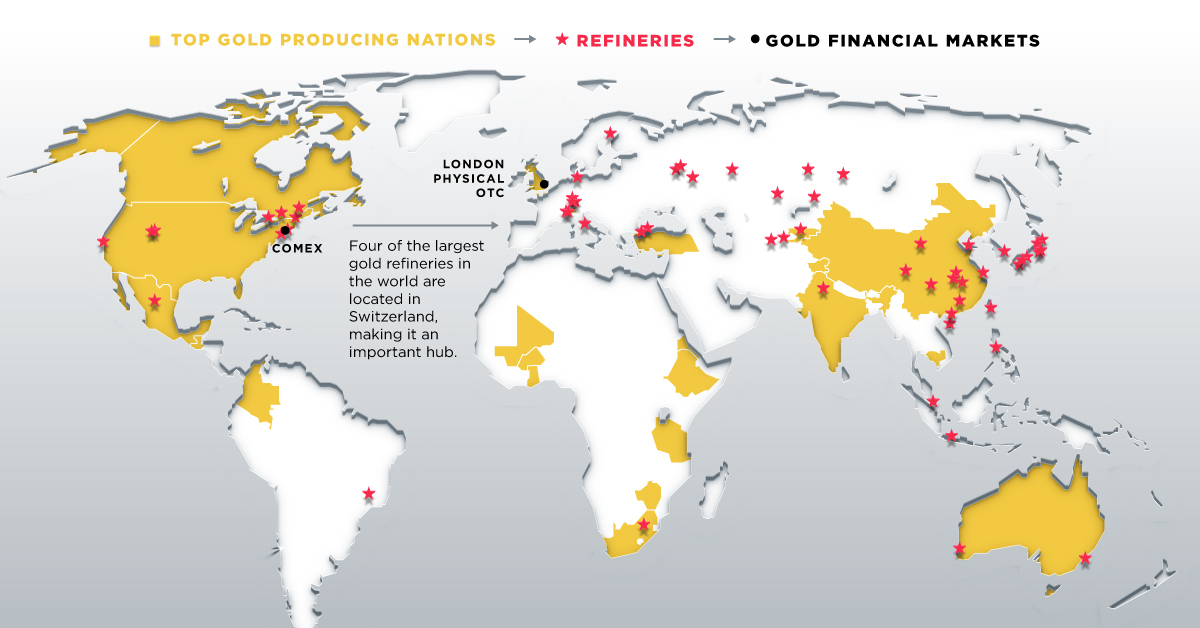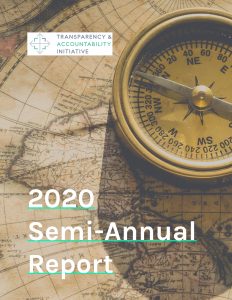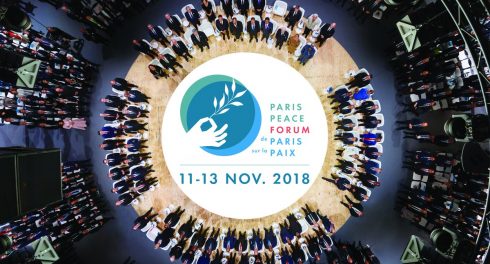Highlight
- We’re back!
- Death by a thousand cuts
- Gold diggers
- The COVID-age corporation
- My country, my budget
- A new giving norm?
- TAI Spotlight: What have we been up to?
We’re back!

Image by Shutterstock via YFC
So, even if the TAI Weekly took a break in August, the world certainly did not – the need for transparency and accountability more evident than ever from DC to Bamako. Lots to cover, so where to start?
Well, the pandemic continues to wreck lives and disrupt. Isabelle Kermeen highlights transparency challenges during COVID-19 as Graham Teskey notes how the pandemic has changed contemporary governance discourse and inserted more urgent, shorter-term and politically pertinent questions from project effectiveness to equality impacts. What are the trends across different aspects of governance? Check out the TAI COVID-19 Monitor. The first issue focuses on what the flurry of trackers are telling us. Dig into coverage of 25 relevant trackers and then read why we created the Monitor.
Staying big picture, Alex Thier says it’s time “to shift focus in its diplomatic and development efforts from merely good governance to democratic governance… and focus on inclusion in politics to ensure empowered citizenry.” He urges the new UK Foreign Commonwealth and Development Office to establish a new democratic governance unit to advance democratic values and combat authoritarianism.
Transparency and accountability of those influencing democracy is getting belated attention. Research funded by WhatsApp’s Research Awards for Social Science and Misinformation examines the impact of social media and digital technology in shaping elections. The report concludes that “WhatsApp is a disruptive technology that challenges existing hierarchies in ways that are simultaneously emancipatory and destructive, strengthening and undermining democratic consolidation at the same time.” Twitter might reach similar conclusions as it launches a Transparency Center that includes its bi-annual transparency reports and summaries, details of state-backed accounts it has suspended, the number of government requests for information on account holders, and a country comparison tool.
Meanwhile, Martin Tisne calls for updated regulations to protect the public interest and counter the collective harms of big data and AI. “Solutions lie in hard accountability, strong regulatory oversight of data-driven decision making, and the ability to audit and inspect the decisions and impacts of algorithms on society.”
In a more positive use of social media, MIT Governance Lab and Grassroot, a South African civic technology organization, detail use of WhatsApp for distance learning in low bandwidth settings to improve the leadership skills of community organizers and build deep networks.
Death by a thousand cuts
Patrick W Quirk and Richmond Blake argue that if the United States wants to reduce global fragility, it must empower civil society. Mali may provide a case in point. The recent coup prompts Moussa Kondo to reflect on country lessons where deterioration of governance and worsening corruption exacerbated poverty and insecurity.
No shortage of power grabs elsewhere, too. Emily Schultheis explains how Viktor Orban in Hungary is using the pandemic to drain power from opposition political party by rezoning revenue earners and handing more power to county governments. Access Now explores the widespread impact of attacks on the rights of peaceful assembly and association in virtual civic space.
The Tanzanian government has passed a law that limits international media coverage of their forthcoming general elections in October. Just weeks after it disqualified the Tanzanian Human Rights Defenders Coalition (THRD) from the list of organizations authorized to provide voters education and monitor the election, the government ordered banks to block funds for THRD, forcing it to shut down temporarily. In Nigeria, journalist David Hundeyin and the Socio-Economic Rights and Accountability Project separately dug into the innocuous-sounding Companies and Allied Matters Bill and found worrying provisions, especially for the operation of independent civil society, for press freedom and human rights.
Gold diggers
That same Nigerian legislation attracted more positive international notice as formally requires beneficial ownership transparency, delivering on President Buhari’s promise dating back to 2016. Why might that matter? Peter Low details the rapid progress on extractives ownership disclosures in Armenia as inspiration. In another case of data use, Vanessa Baudin Sanchez assesses stakeholder needs from West African extractives industries data portals.
The Nigerian National Petroleum Company has also joined the list of Extractive Industries Transparency Initiative (EITI) supporting companies, while Uganda became the newest EITI member country and Ecuador commits to join, presenting its candidacy to the EITI International Board.
What about the economic picture for resource rich countries? A new report from the Inter American Development Bank suggests those in Latin America and the Caribbean are failing to realize economic potential due to fiscal regimes that “unintentionally discourage investment, limit production and create deadweight losses.” As one counter to such losses, the World Bank and IMF have been urging creation of medium-term domestic revenue mobilization strategies. Reviewing the experiences of Papua New Guinea, Indonesia, and Uganda, Peter Mullins explores the constraints and concludes that while country take-up has been disappointing, the approach has merits for boosting domestic funds.
Those with gold reserves are likely smiling as the economic stresses of the pandemic have prompted a rush to the metal as a safe investment. What does that mean for the gold supply chain? Nicholas Le Pan gives us a visual explanation. Check it out. Here’s a snapshot…
 Image viaVisual Capitalist
Image viaVisual Capitalist
Essential Watch: Open Ownership’s first technology showcase
The showcase highlights numerous tools to capture hard to get data on contracts and the variety of ways they use beneficial ownership data in their work. The showcase includes presentation from mySociety, OCCRP, Open Ownership, Dun & Bradstreet, Sinar Project, YouControl, and PesaFlow.
The COVID-age corporation
Lucy Colback examines how the role of corporation in society is changing when it comes for environmental, social and governance factors. She looks at everything from attitudes to taxation to worker conditions to diversity. Avoiding grand promises may be the smartest start. So suggests the experience of fashion brand Everlane and their once lofty promise of “radical transparency”.
You will also want to dig into the financials of any potential buyer. Don Weinland and Sherry Fei Ju detail a cautionary tale of Consolidated Minerals bought out by a Chinese firm that proved to be highly indebted and whose owner – Jia Tianjiang – became embroiled in corruption allegations (police claimed to find 3 metric tonnes of cash in one of his homes.) Another investigation reveals North Korean businesses are violating sanctions to win construction contracts in the Democratic Republic of Congo, including erecting statues (in high demand in more autocratic regimes). The Sentry has some sharp recommendations for strengthening regimes to prevent such violations.
In the wake of the Wirecard scandal, Stephan-Gotz Richter says German private sector is overdue for more transparency, healthy competition, and regulators who provide effective oversight, not protection of national champions. The art market is also due for a shakeup as it is proving to be a reliable way for oligarchs to get around U.S. sanctions. It is time for more transparency in the high value art transactions.
The Organized Crime and Corruption Reporting Project exposes how the Isle of Man has become a tax haven for the super-rich like Oleg Tinkov, avoiding millions in tax on private jets he leased to himself via his own shell corporations. Matthew Page and Jodi Vittori reveal how Dubai facilitates corruption and illicit financial flows – consequently becoming a globally attractive destination for dirty money and criminal actors.
Is the Lava Jato investigation in Brazil running out of steam? Worries of a backlash from government and judiciary could undermine further investigation. In contrast, investigations are on the rise in Mexico, although the targeting of political opponents suggests a politicization that could undermine long term credibility.
At the global level, what can the G20 do to fight corruption? Blair Glencorse and Sanjeena Pant explore challenges that have prevented the G20 coalition from making progress on past commitments and how they can overcome these challenges.
My country, my budget

Staying global, as the UN discusses progress of the 2030 Agenda implementation at the ongoing High Level Political Forum, OSF grantee member, INESC, calls for a budgetary proposal that fully address oppressions in society. In a step that might help, the world of participatory budgeting has a new Global Hub with the launch of People Powered (funded by TAI members Hewlett and Ford foundations.)
Open Government Partnership (OGP) and the World Bank research assessed 78 countries participating in the OGP around four areas of global regulatory governance. The headline? More work is needed to ensure public access to laws and regulations, transparency of and public consultation in the rulemaking process, and processes for challenging regulations.
A new giving norm?
What happens when philanthropy prioritizes funding organizations rooted in the Global South and substantively led by women? Co-impact Lab’s Kappie Farrington shares reflections and lessons from their recent round of grantmaking that focused on initiatives focused on Global South-rooted and women-led initiatives. Surely not too hard for others to follow suit.
Meanwhile, concerned about accountability of tax benefits in philanthropy, Alan M. Cantor says commercial donor-advised funds (DAFs) in the U.S. should be subjected to spending requirements and only award tax deductions only after grants from DAFs are actually made.
Finally, feeling like your inter-team brainstorming sessions have been hindered by remote working? Art Markman has some tips on how to brainstorm more effectively while working remotely.
TAI Spotlight: What have we been up to?

Transparency and Accountability Initiative (TAI) published our 2020 semi-annual report mid-August featuring of our wins, challenges, learnings in the first half of the year and our plans for the remainder of the year and the future.
Chandler Foundation joined a panel on social investments for systems change to discuss how India can accelerate development with a multi-sector approach.
Ford Foundation President Darren Walker discusses philanthropy, social justice, and the wealth gap with “CBS This Morning” co-host Anthony Mason and The Economist Radio. He also provided nine ways corporations can take to address racial inequality and really makes a difference.
Hewlett Foundation launched a refresh of their women’s economic empowerment strategy and shared their climate communications grantmaking strategy. Also, don’t miss Isabel Silver Nogueira’s interview with the Foundation’s Global Development and Population Program Officer, David Sasaki, on what she learned as an intern with the transparency, participation, and accountability (TPA) team.
Luminate launched a $3m fund with Open Society Foundations and Fundación Avina to protect human rights and expand civic space in Latin America. They have also invested in Paradigm Leadership Support Initiative (PLSI) to further promote transparency and accountability in Nigeria through public audits.
MacArthur Foundation shared learnings from the 100&Change finalists’ orientations and their commitment to evaluation, transparency, and informed decision making. The Foundation is also reevaluating their policies and practices to ensure they live up to their Just Imperative. Part of this effort is updating their style guide to capitalize Black, Brown, Indigenous, and White when referring to race and ethnicity.
Open Society Foundations filed a lawsuit demanding the Trump administration release official records about its COVID-19 response. Don’t miss George Soro’s 90th birthday interview with La Republica and the truth about the top five most pernicious myths about him.
DFID has published metadata standards and guidance on how to improve data sharing across the government, their evaluation report for 2019-2020 and other reports as they transition into the Foreign, Commonwealth and Development Office (FCDO) this month.
Job listings
- Job postings at Ford Foundation – Ongoing
- Job postings at Luminate – Ongoing
- Job postings at Democracy fund – Ongoing
- Job postings at Wikimedia Foundation – Ongoing (and mostly remote)
- Government Affairs Senior Policy Advisor, International Financial Institutions at Oxfam – Ongoing
- Director of Development and Solidarity Philanthropy at Grassroots International – Ongoing
- Senior Communications Coordinator at Grassroots International – Ongoing
Calls/Opportunities
- BetterTogether Challenge for innovators – Ongoing
- Call for research proposals: Tax and civil society [No Deadline]
- Free Digital Security Training – Ongoing
- Open Road Alliance Charitable Grant and Loan to organizations responding directly to COVID-19 – Ongoing
- Call for submissions to SSIR Series: Social change in an era of extreme polarization – Last Thursday of every month until early 2021
- Pulitzer Center Coronavirus news collaboration challenge – Applications will be reviewed on a first-come, rolling basis
- Call for proposals: Informality, tax, and the state – Proposals accepted on a rolling basis
- Citizen-Led Accountability: Strategies and Tools Certificate course – Apply by October 1, 2020
- Evaluation consultant for Joseph Rowntree Charitable Trust’s Power and Accountability programme – September 28, 2020 (9am)
Calendar
- WE EMpower UN SDG Challenge 2020 – September 18 – 27, 2020 (New York City, United States of America)
- Nonprofit Management Institute 2020, COVID-19: Reshaping social innovation – September 22-24, 2020
- The 2020 Journalism Funders Gathering (funder-only gathering) – October 6-7, 2020 (Philadelphia, United States of America)
- Humanitarian and Development Data Forum – November 2-4, 2020 (Chambery, France)
- Transparency International: 19th International Anti-Corruption Conference – (Postponed)
- International Open Data Conference –(Postponed till 2021)


